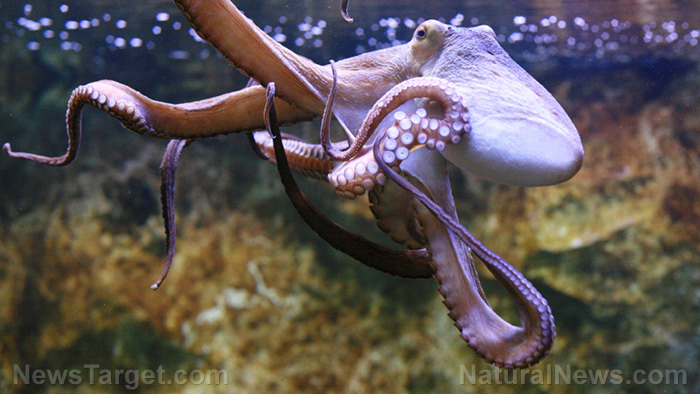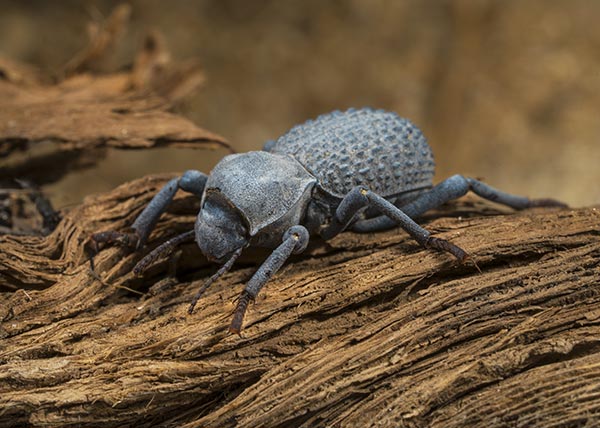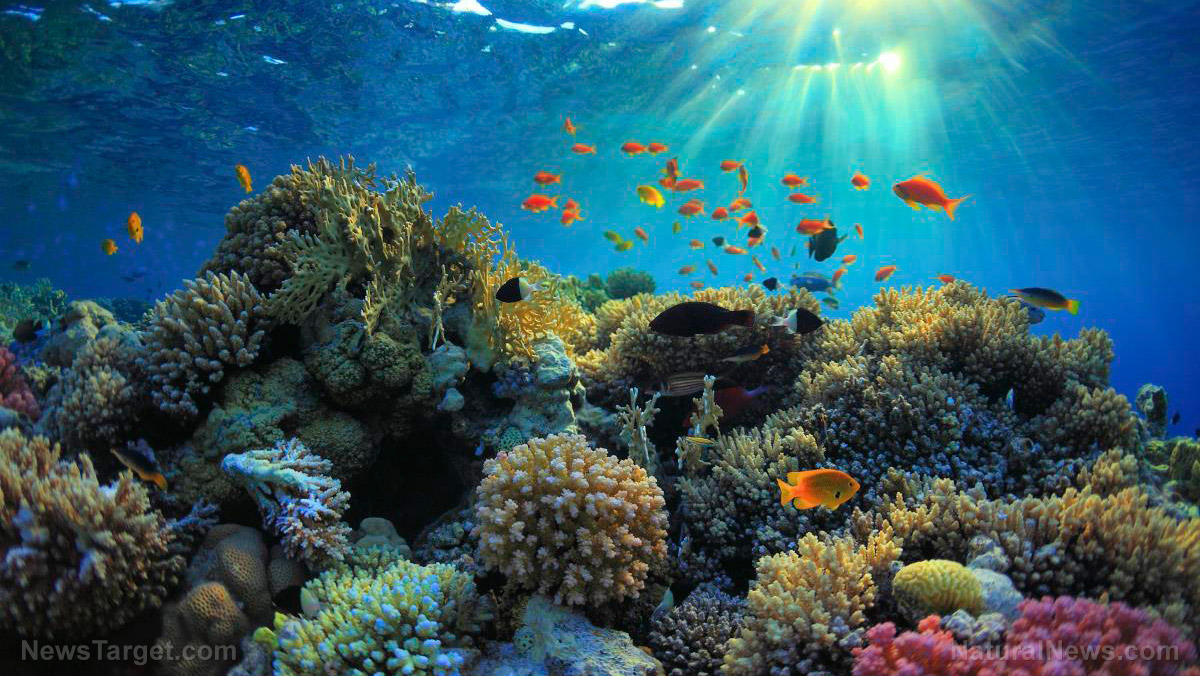Octopuses taste with their tentacles – scientists show how
11/02/2020 / By Divina Ramirez

The unique appearance and abilities of octopus tentacles have left scientists scratching their heads for decades. Previous research shows that the suction cup-covered tentacles are essential for foraging, but few studies looked at them on a molecular level. Now, a new study shows that these tentacles have minds of their own.
In a recent report, researchers from Harvard University have identified a layer of specialized sensors embedded inside each tentacle’s suction cups. These sensors, called chemotactile receptors, detect chemicals produced by aquatic organisms that octopuses prey on. These sensors could also help the animal tell food from rocks and avoid poisonous creatures.
Moreover, the study revealed that the signals from an octopus’ chemotactile receptors do not have to make it to the animal’s brain to be decoded. Instead, signals are processed and acted on by nerves distributed throughout each tentacle, independent from the octopus’ central nervous system.
Overall, the findings shed light on how octopuses and other cephalopods use their unique and intelligent limbs to sense and explore their environments. The full findings appeared online in the journal Cell.
It’s all in the suckers
Scientists know that octopuses have sensors within their tentacles comparable to those found in the nose or on the tongue of terrestrial mammals. To better understand how octopuses use these sensors, the researchers took a close look at the tentacles of two California two-spot octopuses (Octopus bimaculoides).
Detailed imaging showed what looked like sensors on the surface of the suckers. The sensors were isolated and inserted into frog and human cells. Since the sensors are unique to octopuses, the frog and human cells simply act like closed vessels for the sensors.
The researchers then exposed those cells to molecules that an octopus might encounter in real life. Some of the molecules were water-soluble, such as salts and amino acids, while others were insoluble. Marine mammals do not respond well to insoluble substances in most cases.
However, the researchers found that the sensors responded to just one class of non-dissolving molecules called terpenoids. Several aquatic organisms are known to produce terpenoids.
With this new knowledge, the researchers went back to the two California two-spot octopuses and put both the water-soluble molecules and insoluble terpenoids throughout the floors of their tanks. The octopuses explored areas without terpenoids with broad and sweeping movements.
However, the animals stopped moving whenever a tentacle touched a surface infused with terpenoids. It would then either tap the surface and move on or withdraw and avoid that area of the tank. This latter behavior seems to suggest that the octopus is trying to avoid potentially poisonous prey.
Tasting the sea with tentacles
Overall, the findings show that octopuses use a kind of “touch-taste” sense to forage for food and avoid danger in their environment. However, senior author Nicholas Bellono clarified that this sense of “taste” is unlike that of humans.
For instance, when an octopus touches a rock and a crab, its tentacles will be able to tell the two apart because its chemotactile receptors will pick up a “taste” associated with the crab that is absent in the rock. The neurons along the tentacles will then process that signal and help the octopus decide whether it should grab the crab or continue searching.
Not much is known about marine chemotactile behavior. But with this new knowledge, scientists can begin to better understand which signals are important for octopuses and how those signals can be encoded, said lead author Lena van Giesen.
Van Giesen and her colleagues suggest that more studies are needed to identify other natural compounds that can activate octopuses’ chemotactile receptors. (Related: From the sea to the stars: Scientists study octopuses to understand intelligent life on other planets.)
To read more articles about scientific discoveries like this one, visit Discoveries.news.
Sources include:
Tagged Under: animals, biological sensors, chemotactile receptors, cool science, discoveries, Ecology, marine animals, marine life, octopus, research, terpenoids, weird science
RECENT NEWS & ARTICLES
COPYRIGHT © 2017 REAL SCIENCE NEWS



















